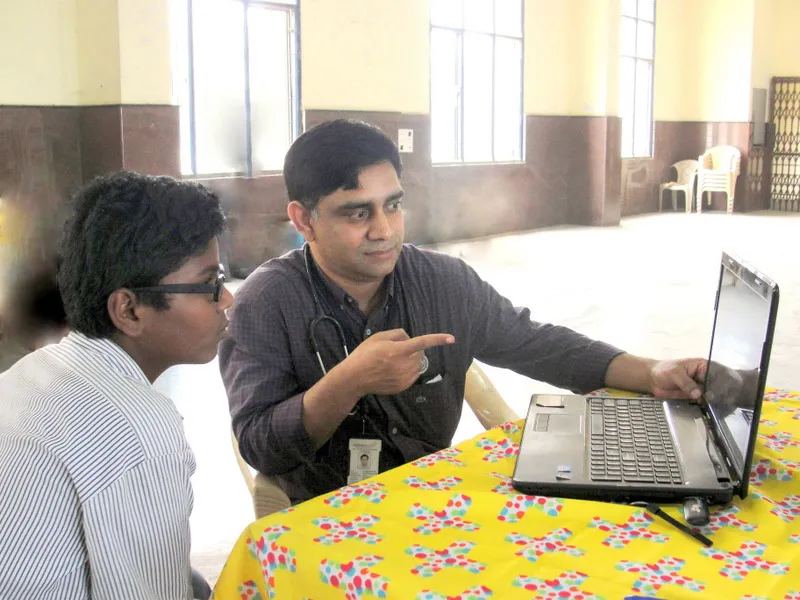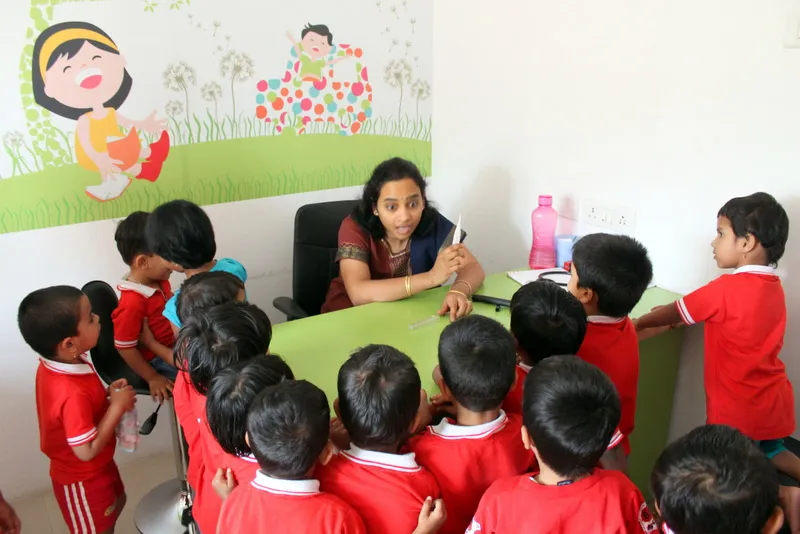New tele-enabled technologies make AddressHealth’s paediatric healthcare more accessible
AddressHealth is a paediatric healthcare focused company that offers affordable preventive healthcare to children and their families.
Founded in 2010 by Dr Anand Lakshman and Dr Anoop Radhakrishnan, both based in Bangalore, along with Dr Shetty and Dr Bettadapura, who provide support from the UK, the primary focus for AddressHealth was to educate parents in the importance of prevention and not just curative healthcare.
“All of us know that prevention is better than cure but find it difficult to practice. We wanted people to proactively address their health rather than wait to fall sick,” says Dr Lakshman, Founder, Director and CEO.

With child immunizations against illnesses such as diphtheria and rotavirus becoming common protocol for parents across India, AddressHealth wants to address the other issues that are often overlooked such as dental hygiene, obesity, mental health and chronic disease management.
With 22% of India’s population being under the age of 12, paediatric healthcare is in big demand, but with many public urban healthcare centres focusing on child mortality and immunisations, it means children are not getting covered for other health issues that can prove just as serious and detrimental.
“15% of children suffer from asthma in Bangalore, and within that, 80% of the parents do not know their child has been diagnosed with it, meaning they don’t get the management, prognostics or medication that they need,” explains Dr Lakshman.
Since the start of AddressHealth, they have opened up three clinics across Bangalore dealing with non-hospital treatments in paediatric care and delivering preventive health to over 28,000 children, more than a third of who study in low income schools. However, it seems that there is still a long way to go in educating parents about the importance of prevention regarding less commonly talked about illnesses.
Upon opening the first AddressHealth clinic on Bannerghatta Road, Bangalore, they set up an annual preventive dental plan available for kids to encourage preventive dental behaviour. With a price of just Rs 300 per year for two dental visits, dental cleaning, 10 other treatments and more, it was as low as one tenth of the cost of any other available programmes, yet they were surprised to find that they struggled to enrol even three people for the plan.
“It has a lot to do with education and a lot to do with people understanding that there is also prevention, the same parents come later with their children having serious problems and spend thousands of rupees on getting it rectified in our clinic but will not subscribe to the preventive programme,” he adds.
AddressHealth aims its services towards the underprivileged living in urban slums and the low and middle class families within the urban areas after discovering that these people are the most deprived of primary and preventive care. After working in child health and child nutrition within the public sector, Dr Lakshman saw that the majority of healthcare services were aimed at the rural Indian areas, and while that is rightly so, he realised that the urban poor needed attention too.
“Typically the Indian public health care system has been only here for the rural areas. Urban public health centres have not been a priority because we are predominantly a rural country, but that is fast changing. It is important that urban healthcare does not get left out.”
AddressHealth has two forms of revenue within their business — by using their health clinics as a base they also reach out to schools and pre-schools in the surrounding areas, providing both clinic revenues and outreach revenues. It is the outreach revenues that are providing the latest developments within low-income schools in Bangalore.

Working within their urban context, AddressHealth clinics are setting up a tele-enabled consultant service to provide quick and affordable preventive healthcare to children from low income families. With a broadband connection from clinics to the schools, combined with a visiting nurse who is on hand within the schools for issues relating to sickness or injuries, the new clinics have also provided the participating schools with a dental chair, so that basic dental examinations and preventive treatments can be done on the school premises.
“If the nurse on hand wants a second opinion, then she beams up through the radio to our existing clinic and our doctor is able to solve it without having to leave the clinic. Apart from this, our scheduled check-ups that deal with people who are overweight or underweight and need a nutritionist to sit and talk to their family are being asked to attend consultations streamed through the tele-link at the schools now instead of the clinics. This gets rid of the barrier and makes it more socially and culturally acceptable for them to attend.”
Despite the outstanding changes that AddressHealth has made so far in giving children and their families knowledge, education and access to preventive health care, Dr Lakshman says there is still a long way to go in changing the way Indian healthcare is both run and perceived.
With such a range of skilled healthcare professionals based in India combined with a large amount of non-skilled healthcare services that are running alongside, it is enforcement of the initiatives that is providing a challenge.
Healthcare enforcement within India is one that could do with a boost that is for sure, after AddressHealth discovered just how many clinics are running under incorrect licencing, if any at all.
“When we applied for a registration under the Clinical Establishment Act, one of the applications we made was for the district health officer licence to run and operate a clinic, the serial number we were given was 295, meaning there were only 294 licenced clinics before us in Bangalore when there are at least tens of thousands of clinics running here. But there are no professionals who can close down un-licenced clinics,” says Dr Lakshman, adding, “It makes it hard because next door you may have someone who set up without a licence and is able to do exactly what you do.”
With more plans to expand their physical presence and use technology to reach out to children in other geographies, and an aim to provide paediatric primary care to a million children by 2018, AddressHealth continues to stress that:
“Healthcare is not hospital care. We should look at preventive and out of hospital care seriously. We need to find innovative financing solutions for these healthcare interventions.”







